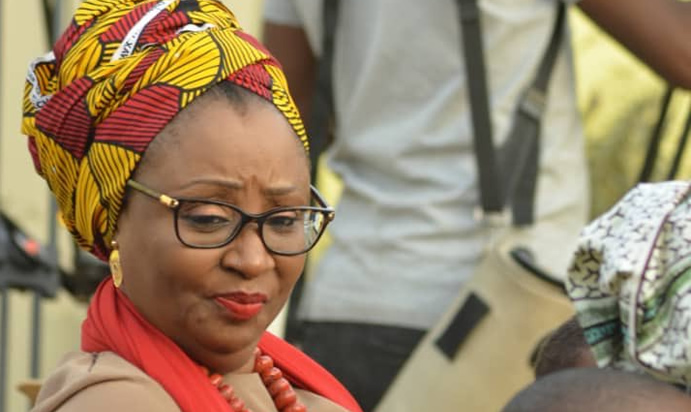Hadiza El-Rufai, the former First Lady of Kaduna State, has publicly taken issue with a recent statement made by Shehu Sani, a former Senator and human rights activist. The controversy arose following Sani’s remarks on social media where he linked President Bola Tinubu’s foreign travel to rising commodity prices and taxes. He claimed that when the President takes a trip abroad, it leads to an increase in economic burdens, humorously framing his observation as a new law of economics. His post highlighted concerns among citizens about the government’s performance amid fluctuating markets.
In a notable display of her linguistic precision, Mrs. El-Rufai, who has a reputation for correcting grammatical errors on social media platforms, pointed out a mistake in Sani’s original post. She emphasized that the correct phrasing should be “go up” rather than “goes up.” This correction was seen as a minor yet pointed refutation of Sani’s argument, showing El-Rufai’s intention to engage critically on social media while highlighting her persistent focus on language and communication.
The interaction between El-Rufai and Sani is underscored by a complicated political history. During their respective tenures in public office, both individuals were engaged in a contentious political rivalry. This strife reportedly influenced Sani’s political fortunes, culminating in his loss of the Senate seat in the 2019 elections. He had previously been affiliated with the All Progressives Congress, which further complicated his political dynamics following his departure from the party amidst rising tensions with El-Rufai.
The rivalry between Sani and El-Rufai is emblematic of broader political frictions within Kaduna State and can be traced back to their differing political ideologies and personal ambitions. The fallout from their conflict has had significant implications for Sani’s political trajectory, including his unsuccessful bid for reelection against Uba Sani, who is now the governor of Kaduna State. This reflects the often volatile nature of Nigerian politics, where personal disagreements can have lasting consequences on political careers.
Hadiza El-Rufai’s correction of Sani also illustrates how social media has transformed political discourse in Nigeria. Platforms like X (formerly Twitter) allow for immediate public engagement and correction, which can serve to uphold standards of communication while also intensifying political rivalries. In this instance, El-Rufai’s intervention serves to remind her audience that even minor inaccuracies in public statements can be fodder for political sparring, highlighting the sensitivities involved in political communication.
In conclusion, the exchange between Hadiza El-Rufai and Shehu Sani reveals the interconnectedness of personal relationships and political narratives in Nigeria. It showcases not only their past conflicts but also the role of social media in shaping public perceptions and political engagements. As these political figures continue to navigate their paths in a dynamic landscape, their interactions reflect broader trends within the nation’s politics, emphasizing how communication and rhetoric can significantly impact reputations and political careers.


